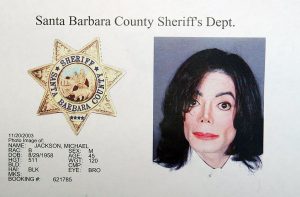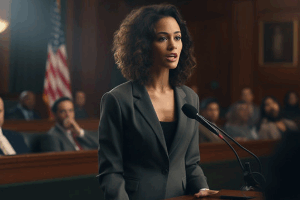
(Photo by Frazer Harrison/Getty Images)
Why do some of us still like this guy even after what he’s been accused of doing?
The work of most people accused of sexual assault has lately been peremptorily canceled.

The Law Firm’s Guide To Trust Accounting And Three-Way Reconciliation
Proper trust accounting and three-way reconciliation are essential for protecting client funds and avoiding serious compliance risks. In this guide, we break down these critical processes and show how legal-specific software can help your firm stay accurate, efficient, and audit-ready.
Some examples:
- Kevin Spacy allegedly groped a young actor at a party and will soon be tried for sexually inappropriate behavior with another young man. Netflix canceled “House of Cards.”
- Charlie Rose, long watched and revered, was accused of appearing before female colleagues wearing nothing but a bathrobe. He was canned.
- Louis C.K. masturbated in front of women. His new movie was never released.
The list goes on. Very few politicians and celebrities survive this type of allegation save for Brett Kavanaugh and Donald Trump.
Will Michael Jackson’s legacy survive or will it fall prey to the cancel culture?
Following the HBO release of the documentary “Leaving Neverland,” radio stations in New Zealand, Australia, and Canada have pulled him from their play lists. Producers of the play, “Don’t Stop ‘Til You get Enough,” a Michael Jackson biography, canceled its Chicago run and say the show itself won’t open on Broadway until at least the mid-2020s. The singer Drake reportedly dropped a song meant to feature Jackson from his ongoing U.K. tour.
Does removing the art of people accused of crimes make sense? Aren’t we cutting off our noses to spite our face? What a flattened world we’d live in if only artists of pristine reputation and stellar values could entertain us.
But if we choose not to cancel the artist, how will our changed feelings about him effect our ability to enjoy his work? Should we feel guilty watching Michael Jackson, listening to his music, respecting his work?
I watched “Leaving Neverland” with caution. I’ve loved Michael Jackson’s compositions, voice, and dance since I was a kid. I didn’t want that to change. I’ve also dealt with tough charges levied against my clients and have generally been able to separate the charges from the man.
But when I saw the complainants against Jackson tell their stories, I recognized the tell-tale signs of truth (even though one had contradicted his tale in prior testimony).
Wade Robson and James Safechuck, the two men accusing Jackson of sexual abuse, looked straight at the camera and without much drama, interruption, or emotionality, said what they remembered. They described a man with a playbook right out of the sexual-offender handbook. Reel in the victim, get him to trust you, shower him with gifts and attention, persuade his parents of your harmlessness, then go in for the kill, starting with pornography, then touching, then secrecy.
Their recollections were juxtaposed with shots of Jackson holding their hands when they were boys wearing outfits identical to his. It included audio of Jackson’s high-pitched voice on telephone messages left on the boys’ home phones telling them he loved and missed them. The show gave me goose bumps, but I couldn’t turn away.
It seemed incomprehensible that the children’s parents let their children walk so freely into the lion’s den. But remember, Jackson was no ordinary seducer. He was the biggest star on the planet, the “King of Pop,” a musical genius. Even though the parents should have known better, they, too, fell prey to his seeming childlike innocence. (That, and their undisguised hope he’d propel their children into show biz.) They turned off their common sense. Maybe we all did.
Thinking back, the likelihood that Jackson had been abusing children was obvious for decades. Deprived of his own childhood, distorted in his view of the world, it makes sense he would have sought companionship with others of the age he missed. Let’s face it, he was screwed up — a fact that became more and more evident each time his skin tone lightened or his face morphed into something more grotesque.
But I still loved his music and chose to sympathize with him. Even Oprah, the grande dame of social causes, remained a committed supporter up to his death.
And his music — the wonderful, ground-breaking blend of pop, soul, R&B, and funk – was astonishing at the time and still sampled. Am I now supposed to no longer listen and enjoy?
These are personal questions and personal choices.
His music will always move me. I remain amazed when I watch videos of the fluidity, grace, and magic of his dancing. His sound will leave a legacy in pop music for generations.
No, I won’t stop listening to him, but neither can I forget the depiction of him in “Leaving Neverland.” He seems to have gotten away with a crime. By rights, he should have spent years in jail, like my clients do for lesser ills. But they were not as talented, wealthy, or famous.
Because we loved his music (and still do), many of us collectively looked the other way even though his perversity stood front and center. We didn’t want to stop his art. It was too good.
The parents of these boys were, for sure, complicit, but in a way, we all were.
Toni Messina has tried over 100 cases and has been practicing criminal law and immigration since 1990. You can follow her on Twitter: @tonitamess.
